The Teachers’ Lounge Review: Oscar-nominated German school drama is a startling, gale-force thriller
Ilker Çatak’s film is an astounding, tightly coiled ball of anxiety
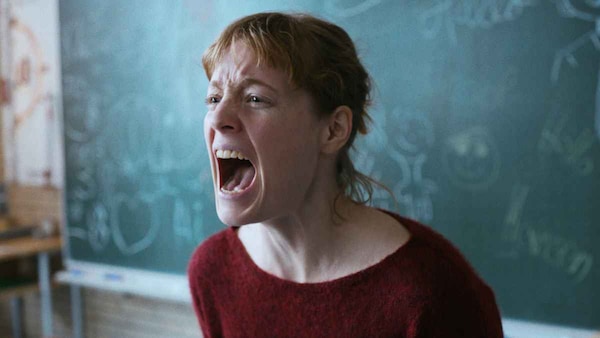
Last Updated: 07.08 PM, May 10, 2024
Story: The film follows Carla Nowak (Leonie Benesch), a junior school teacher, who is determined to investigate a suspicion of theft hurled at one of her students, in the hopes of defending their innocence. However, she finds herself trapped in the crosshairs between the school administration and her students, with all her ideals coming under scrutiny.
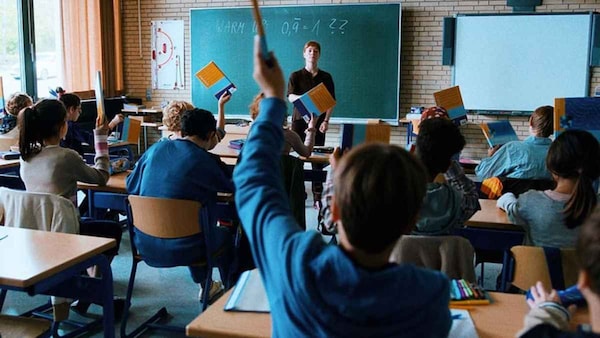
Review: Ms. Nowak prides on her righteousness. Unlike her colleagues, she is more inclined to take the word of the students for good and honour it. She is aware her beliefs and attitudes may at times risk the disaffection of fellow staff and the school administrative authorities. However, her dogged conviction in them enables her to endure incredible stress. But to what degree can her fierce commitment to democratic ideals last? This is a space she thinks has considerable power to mould for the better, which instead has been coloured by all the unpleasant excesses of adult society.
Ilker Çatak casts an unblinking look at the school as a microcosm of the world with all its messy, unwieldy complications that only seem to magnify and intensify at every turn. As things get uglier and vicious, Çatak’s clear-eyed direction cuts to the bone, jangling nerves and letting any quiet resolution be a mere momentary illusion. What drives the film is a stark insistence on exposing the truth with its fraught edges. People staking their claims to it are many even as Çatak leads us down a trail where we outgrow an early, probable confidence of faith in anyone. Suspicion is the central axis and we become privy to how it is weaponized. Nowak fights it but soon finds what she held as the singular truth, eroding. Through Nowak’s class lessons, the screenplay by Çatak and Johannes Duncker inserts small, subtle cues about the thematic digging into the nature of truth and proof. Early in the film, Nowak instructs her students that every proof needs a derivation. These are the very things that get dislodged and ripped apart as Nowak is gradually bulldozed from all directions.

Nowak knows what she must resist resembling. She sees through the glaring misjudgements of adults around her and holds on to what her integrity and idealism guide her into believing. In an early scene, when the authorities coerce students to snitch on one another to extract information about rampant thefts in school, Nowak flinches and protests. But she is the only one. All the suspicion gets hurled at a Muslim student. The prejudice is obvious even as the teacher who flagged it takes a great gripe with being called out a racist.
Despite the parents explaining away any misunderstanding, it is too late. The insinuation has been planted and it remains a hovering presence. As a storyteller, Çatak’s inquiry is to chase this seed of an inkling, and especially what transpires once it is pinned on someone. The implications and repercussions, as what Çatak depicts in the most thorny, direct and probing fashion, are vast and threaten to shadow the very original circumstance.
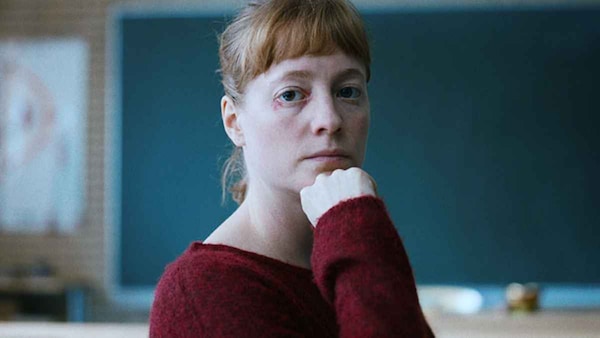
When Nowak uses her laptop camera to capture who has stolen from her wallet, she is initially certain of what the footage evidence indicates. One of the staff is incriminated, the edges of whose particular blouse pattern caught on camera is used to levy the charge at her. The woman loses her job but her son, Oskar (Leonard Stettnisch), happens to be a student in Nowak’s class.
The situation quickly rolls into a psychologically fraught battle of wills between the teacher and the student. Oskar practically dares Nowak into a challenge, testing her grip on the flow of consequence. Refreshingly, kids in this film are capable of outsmarting adults, having learned tricks passed onto them. Things blow up and frantically spiral out of control; it is this maddening, relentless domino effect that Çatak evokes skilfully with no anchor of relief while offering trenchant insights into precarious power play. Nowak is stumped, thrown off into the deep end. The situations whirling around her gain such horrifying severity she is confronted with the acute discomfort of having every surety slip away. Ambiguity gains centre stage and the film is all the more richer for it.
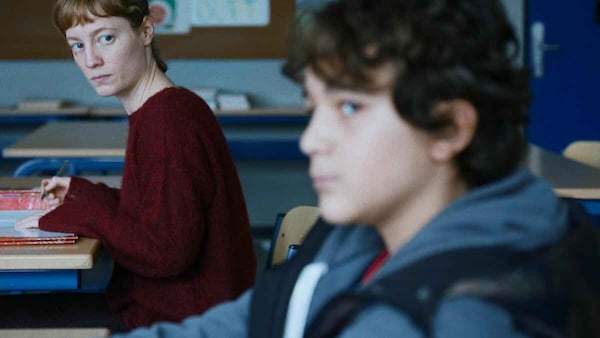
Gesa Jäger’s taut editing relies on Marvin Miller’s music, which amps up dread from the get-go which peaks in an extraordinary, jolting sequence where Nowak is interrogated by a classful of parents. Benesch is spectacular as a woman struggling to keep her beliefs and composure intact and finding those constantly pushed to breaking point. Nowak is stubbornly convinced she can bring the students around to her perspective, as she wards off any support that comes her way but violates her principles. It is agonising to witness her going through harsh trials. Nowak keeps up a sturdy guard. When she finally crumples and asks a colleague if she could give her a hug, we are allowed to breathe a moment of calm after volcanic eruptions.
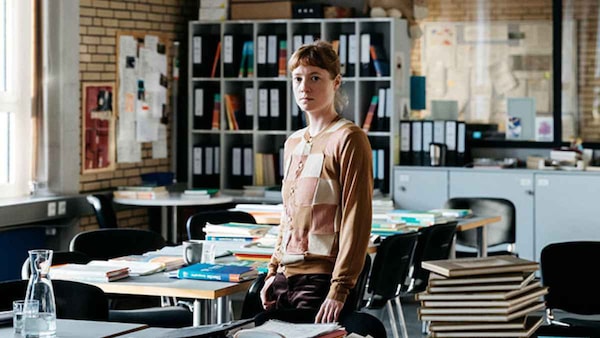
Verdict: Powered by a staggering Leonie Benesch, The Teachers’ Lounge is filled with pulse-racing unease and an audacious rigour that leaves the viewer shaken. It is breathlessly constructed and compulsively riveting, capped off by a provocative coda that can spawn hours of heated debate.
Subscribe to our newsletter for top content, delivered fast.

